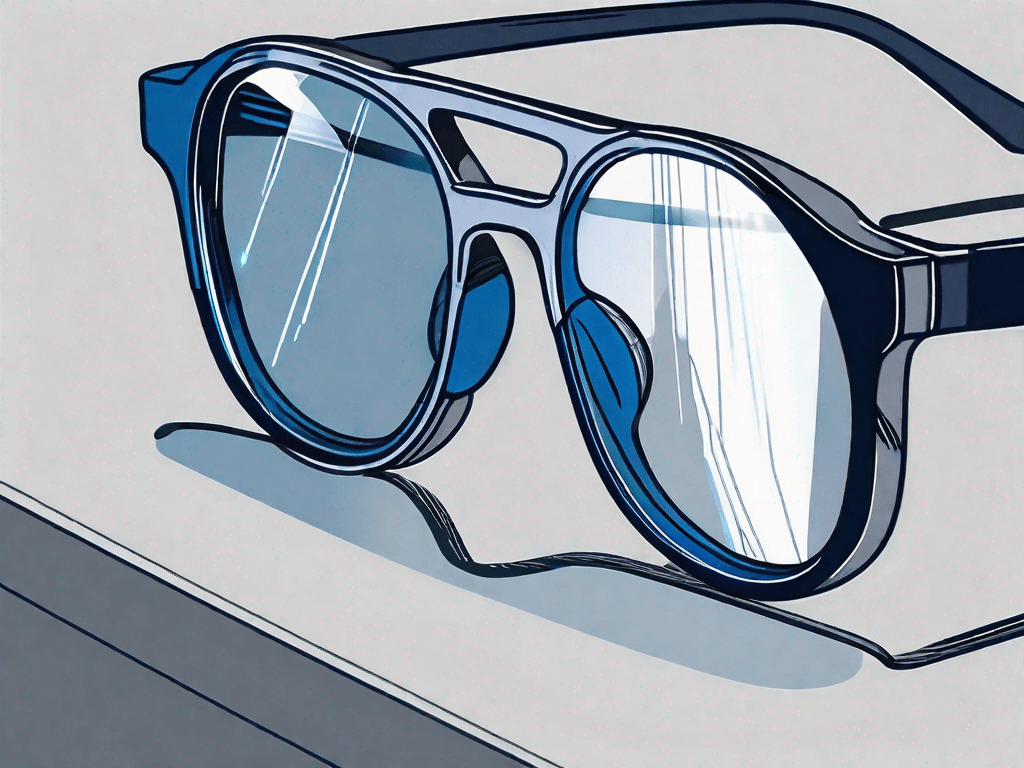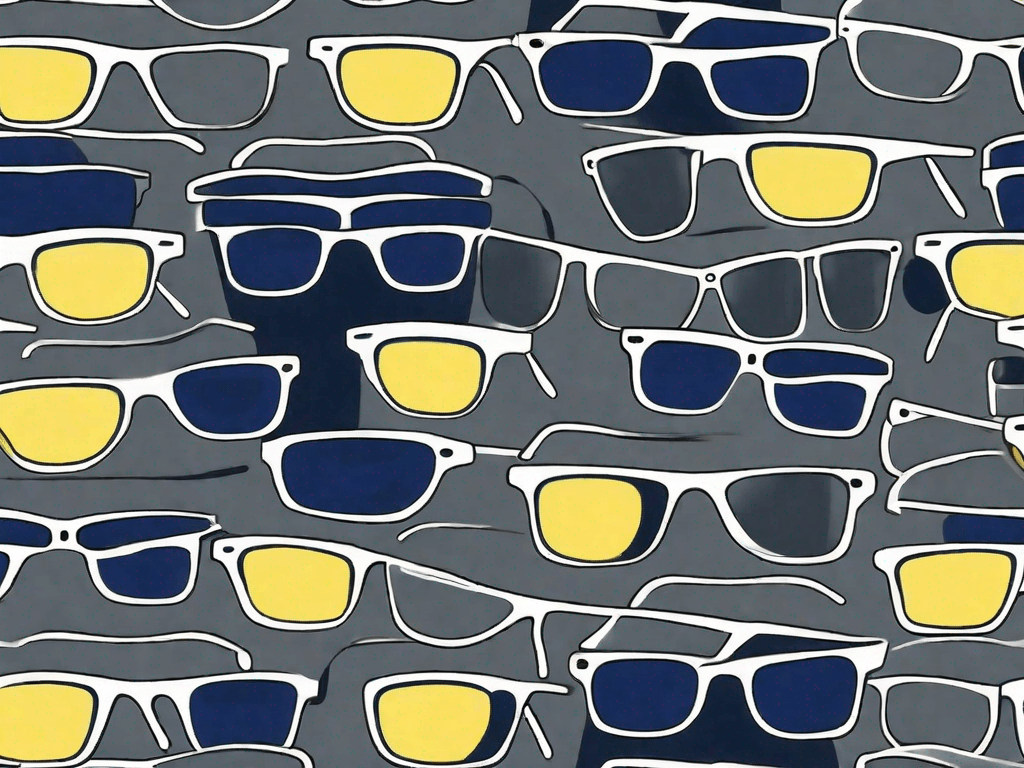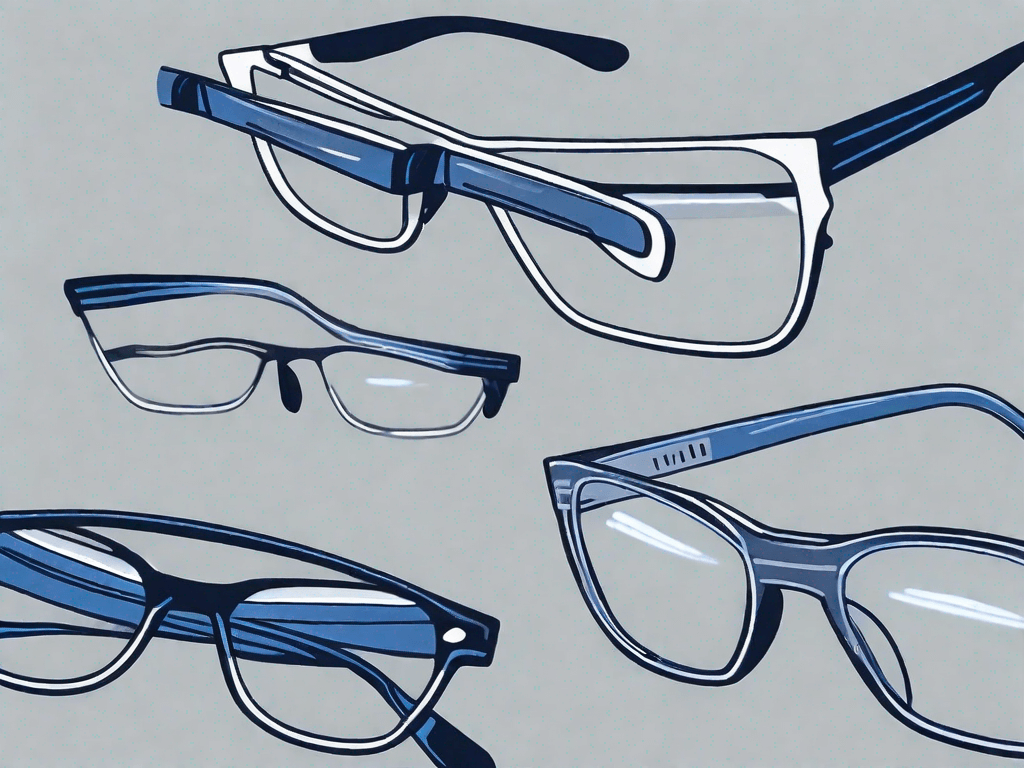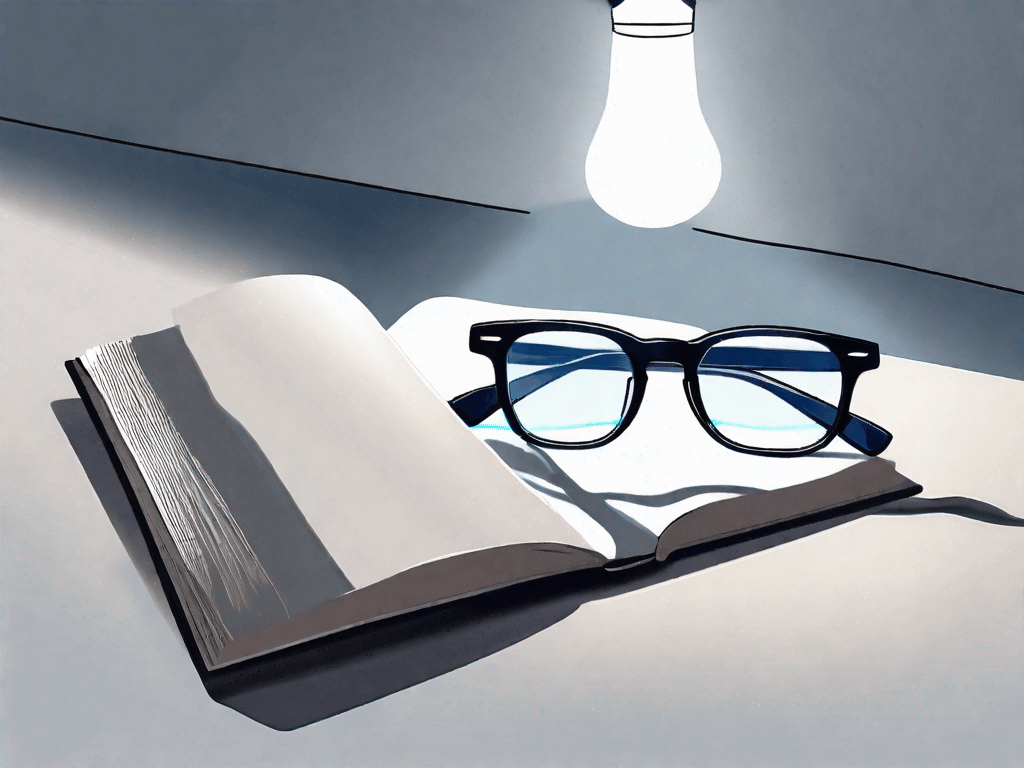Should You Wear Blue Light Glasses When Watching TV?
In today's digital age, it's hard to escape the glow of screens. Whether it's working on a computer, scrolling through social media on a smartphone, or binge-watching the latest TV series, our eyes are constantly exposed to blue light. With the increasing concern about the potential harm of blue light on our eyes, it's no wonder that blue light glasses have gained popularity. But do we really need them when watching TV? In this article we'll answer the question: should you wear blue light glasses when watching tv?
Understanding Blue Light and Its Effects
Before we delve into the benefits of blue light glasses, let's first understand what blue light is and how it affects our eyes.
Blue light, also known as high-energy visible (HEV) light, is a short-wavelength light that is emitted by various electronic devices, including TVs, smartphones, tablets, and computer screens. It is a naturally occurring component of sunlight, but prolonged exposure to artificial sources of blue light has raised concerns among health professionals.
When we are exposed to blue light, it penetrates deep into our eyes, reaching the retina. The retina is a thin layer of tissue at the back of the eye that contains cells called photoreceptors. These photoreceptors are responsible for converting light into electrical signals that are sent to the brain, allowing us to see.
However, not all blue light is harmful. In fact, some blue light is essential for our well-being. It helps regulate our sleep-wake cycle, boosts alertness, and enhances our mood. The problem arises when we are exposed to excessive amounts of blue light, especially in the evening or at night.
Studies have shown that extensive exposure to blue light, particularly in the evening or at night, can disrupt our circadian rhythm, also known as our body's internal clock. Our circadian rhythm helps regulate various physiological processes, including our sleep-wake cycle. When our circadian rhythm is disrupted, it can lead to difficulties falling asleep, staying asleep, and getting restful sleep.
There is growing evidence that blue light may contribute to digital eye strain, also known as computer vision syndrome. Digital eye strain is a condition that occurs when our eyes are exposed to digital screens for extended periods. Symptoms of digital eye strain include eye fatigue, dryness, blurred vision, headaches, and neck and shoulder pain.
One reason blue light is believed to contribute to digital eye strain is because it scatters more easily than other colors. This scattering causes the light to be less focused, leading to a decrease in contrast and making it harder for our eyes to maintain focus. As a result, our eyes have to work harder, leading to eye strain and discomfort.
Blue light has been found to increase the production of reactive oxygen species (ROS) in the retina. ROS are highly reactive molecules that can cause oxidative damage to cells. Over time, this oxidative damage can contribute to the development of age-related macular degeneration (AMD), a leading cause of vision loss in older adults.
Given the potential negative effects of blue light, it is important to take steps to protect our eyes. One effective way to do so is by wearing blue light glasses. Blue light glasses are specially designed to filter out a portion of blue light emitted by electronic devices, reducing our exposure and minimizing the potential harm to our eyes.
Blue light is a high-energy, short-wavelength light that is emitted by electronic devices. Prolonged exposure to blue light, especially in the evening or at night, can disrupt our circadian rhythm, contribute to digital eye strain, and potentially lead to long-term eye health issues. By understanding the effects of blue light and taking proactive measures, such as wearing blue light glasses, we can protect our eyes and promote overall eye health.
The Science Behind Blue Light Glasses
Blue light glasses have emerged as a possible solution to counteract the negative effects of blue light exposure. But how do they actually work?
Blue light glasses are specially designed to filter out a portion of the blue light emitted by screens. They feature lenses that are coated with a filtering material, such as a blue light-blocking polymer. This material selectively blocks blue light wavelengths while allowing other light to pass through, resulting in reduced exposure.
But what exactly is blue light, and why is it a concern? Blue light is a high-energy, short-wavelength light that is emitted by electronic devices such as smartphones, tablets, and computer screens. It is also present in natural sunlight. While exposure to blue light during the day can help regulate our sleep-wake cycle and boost alertness, excessive exposure at night can disrupt our sleep patterns and cause digital eye strain.
How Do Blue Light Glasses Work?
Blue light glasses work by filtering out a specific range of blue light wavelengths. The filtering material used in these glasses is designed to absorb and block the harmful blue light while allowing other wavelengths of light to pass through. This selective filtering helps to reduce the amount of blue light that reaches our eyes, thus minimizing the potential negative effects.
When we wear blue light glasses, the lenses act as a barrier, preventing a significant portion of the blue light from entering our eyes. This can help reduce eye strain, dryness, and fatigue that can occur after prolonged exposure to screens. By blocking the blue light, these glasses aim to create a more comfortable viewing experience and promote healthier sleep patterns.
The Effectiveness of Blue Light Glasses
While blue light glasses have gained popularity, their effectiveness in alleviating the symptoms of digital eye strain and improving sleep quality is still a topic of debate. Some people report significant improvements, claiming that wearing blue light glasses has reduced eye strain and helped them sleep better at night.
It's important to note that blue light glasses may not completely eliminate all blue light, and the level of filtering depends on the specific type of glasses. Different brands and models may offer varying degrees of blue light protection. Therefore, the effectiveness of blue light glasses varies from person to person.
The impact of blue light on our health and well-being is still being studied. While excessive exposure to blue light at night has been linked to sleep disturbances, more research is needed to fully understand the long-term effects and determine the optimal use of blue light glasses.
It is also worth considering that reducing blue light exposure is not the only solution to address the negative effects of screen time. Practicing good screen habits, such as taking regular breaks, adjusting screen brightness, and maintaining proper posture, can also contribute to eye health and overall well-being.
In conclusion, blue light glasses are designed to filter out a portion of the blue light emitted by screens, aiming to reduce eye strain and improve sleep quality. While their effectiveness may vary from person to person, incorporating other healthy screen habits alongside the use of blue light glasses can help promote better eye health in the digital age.
Pros and Cons of Wearing Blue Light Glasses
Like any other decision, wearing blue light glasses comes with its own set of pros and cons. Let's explore them further.
Potential Benefits of Blue Light Glasses
One of the notable benefits of wearing blue light glasses is potentially reducing eye strain caused by prolonged screen time. By filtering out blue light, these glasses may help alleviate symptoms such as dry eyes and blurred vision, making screen usage more comfortable.
Blue light glasses can be particularly beneficial for individuals who spend long hours in front of digital screens, such as office workers, students, and avid gamers. These glasses can provide a layer of protection against the harmful effects of blue light emitted by electronic devices.
Some individuals find that wearing blue light glasses in the evening improves their sleep quality, as they help reduce the exposure to blue light that can interfere with the body's natural sleep-wake cycle. This can be especially beneficial for those who have trouble falling asleep or experience disrupted sleep patterns.
Blue light glasses have become a popular accessory in the fashion industry. With various styles and designs available, individuals can not only protect their eyes but also make a fashion statement.
Possible Drawbacks of Blue Light Glasses
While there are potential benefits, it's essential to consider the drawbacks as well. Blue light glasses may alter the color perception of the screen, giving a yellowish tint to the display. This can affect the overall viewing experience, especially for individuals who require color accuracy, such as graphic designers or photographers.
Some people may find it challenging to adapt to wearing blue light glasses, especially if they are not accustomed to wearing prescription or protective eyewear. The adjustment period may involve getting used to the weight, fit, and overall feel of the glasses.
Blue light glasses are not a standalone solution to reduce eye strain or improve sleep. It's important to address other contributing factors, such as managing screen time, adjusting screen settings, and practicing regular eye exercises. Incorporating these habits alongside wearing blue light glasses can lead to more effective results.
It's worth mentioning that not all blue light glasses are created equal. The quality and effectiveness of blue light filtering can vary across different brands and models. It's crucial to do thorough research and choose a reputable brand that offers reliable protection against blue light.
While blue light glasses can provide potential benefits such as reducing eye strain and improving sleep quality, it's important to consider the possible drawbacks and understand that they are not a cure-all solution. Consulting with an eye care professional can help determine if blue light glasses are suitable for individual needs and provide personalized recommendations.
Blue Light Exposure from TV Screens
With the rising popularity of streaming services, TV screens have become a major source of blue light exposure. Let's understand the extent of blue light emitted by TVs and how it compares to other devices.
Blue light, a high-energy visible light, is emitted by various electronic devices, including TVs. While there is variation between different TV models, modern LCD and LED TVs emit a significant amount of blue light compared to older CRT models. However, the absolute intensity of blue light emitted by TVs is generally lower than that emitted by smartphones, tablets, and computer screens.
The distance between the viewer and the TV also impacts the amount of blue light exposure. Sitting at a reasonable distance and avoiding excessive screen time can help mitigate the potential harm. Additionally, some newer TV models offer blue light filters or settings that allow users to reduce the amount of blue light emitted, providing a more comfortable viewing experience.
Comparing Blue Light Exposure: TV Screens vs. Other Devices
When it comes to blue light exposure, TVs are not the sole culprit. Other electronic devices, like smartphones and computers, also emit blue light. However, the proximity and duration of screen time may differ, which can affect the level of exposure. Therefore, it's important to consider the overall screen usage habits when evaluating the necessity of blue light glasses.
Smartphones, with their compact screens, are often held at a closer distance to the eyes compared to TVs. This close proximity can result in a higher level of blue light exposure. Similarly, computers and tablets, which are frequently used for extended periods, can contribute to prolonged blue light exposure.
The content being viewed on these devices can also impact the level of blue light exposure. For example, streaming platforms often have dark-themed interfaces, which may reduce the overall blue light emitted. On the other hand, websites or applications with predominantly white backgrounds can increase the exposure to blue light.
It's important to note that blue light exposure is not inherently harmful. In fact, exposure to natural blue light during daylight hours can have positive effects on our mood, alertness, and overall well-being. However, excessive and prolonged exposure to artificial blue light, especially during evening hours, can disrupt our sleep patterns and potentially contribute to eye strain and fatigue.
To protect against the potential negative effects of blue light exposure, various strategies can be employed. These include adjusting the display settings on electronic devices to reduce blue light emission, using blue light filtering software or apps, and wearing blue light blocking glasses. Additionally, taking regular breaks from screen time and practicing good sleep hygiene can also help minimize the impact of blue light on our health.
Making the Decision: Should You Wear Blue Light Glasses?
The decision to wear blue light glasses when watching TV depends on several factors. Let's explore what you should consider before making a choice.
Factors to Consider
The first factor to consider is the amount of time you spend watching TV. If you frequently indulge in long TV marathons, especially in the evening, blue light glasses might be worth considering to reduce eye strain and potential disruption of sleep patterns. However, if your TV usage is limited and you maintain a healthy balance between screen time and other activities, the need for blue light glasses may be less significant.
Another aspect to consider is your personal sensitivity to blue light. If you already experience symptoms of digital eye strain, wearing blue light glasses can potentially alleviate your discomfort and improve visual comfort.
Expert Opinions on Blue Light Glasses
Opinions among eye care professionals regarding the necessity of blue light glasses vary. While some professionals recommend them for individuals with specific needs, others emphasize that managing screen time and practicing proper eye care habits are more crucial for maintaining eye health.
Before making a decision, it's advisable to consult with an eye care professional who can evaluate your specific circumstances and provide personalized recommendations.
Alternatives to Blue Light Glasses
If you're unsure about wearing blue light glasses, there are alternative strategies you can adopt to reduce blue light exposure and promote healthy eyes.
Reducing Screen Time
One of the simplest and most effective ways to reduce blue light exposure from TV screens is by limiting the amount of time you spend watching TV. Set boundaries on your screen usage and allocate time for other activities that don't involve screens, such as reading, exercising, or pursuing hobbies.
Adjusting Screen Settings for Lower Blue Light Emission
Many TVs have settings that allow you to adjust the color temperature and blue light emission. By selecting a warmer color temperature and reducing the blue light output, you can minimize the potential harm without the need for blue light glasses.
Refer to your TV's user manual or explore the settings options to find the adjustment controls that suit your preferences and needs.
Eye Exercises to Reduce Strain
Throughout the day, take regular breaks and incorporate simple eye exercises to relieve strain. These exercises can include focusing on distant objects, blinking frequently to moisturize the eyes, and practicing the 20-20-20 rule - every 20 minutes, look at an object 20 feet away for 20 seconds. By following these exercises, you can help reduce eye fatigue and strain caused by prolonged TV viewing.
Conclusion: Balancing Screen Time and Eye Health
In conclusion, wearing blue light glasses when watching TV is a personal choice that depends on individual preferences and circumstances. While these glasses may provide potential benefits, it's crucial to maintain a balanced approach to screen time and prioritize overall eye health.
Remember to consider factors such as the amount of TV usage, personal sensitivity to blue light, and the recommendations of eye care professionals. Implementing alternative strategies like reducing screen time, adjusting screen settings, and practicing eye exercises can also play a significant role in safeguarding your eyes from the potential harms of blue light.
Ultimately, by staying informed and making conscious choices, you can maintain a healthy balance between technology and your well-being.





